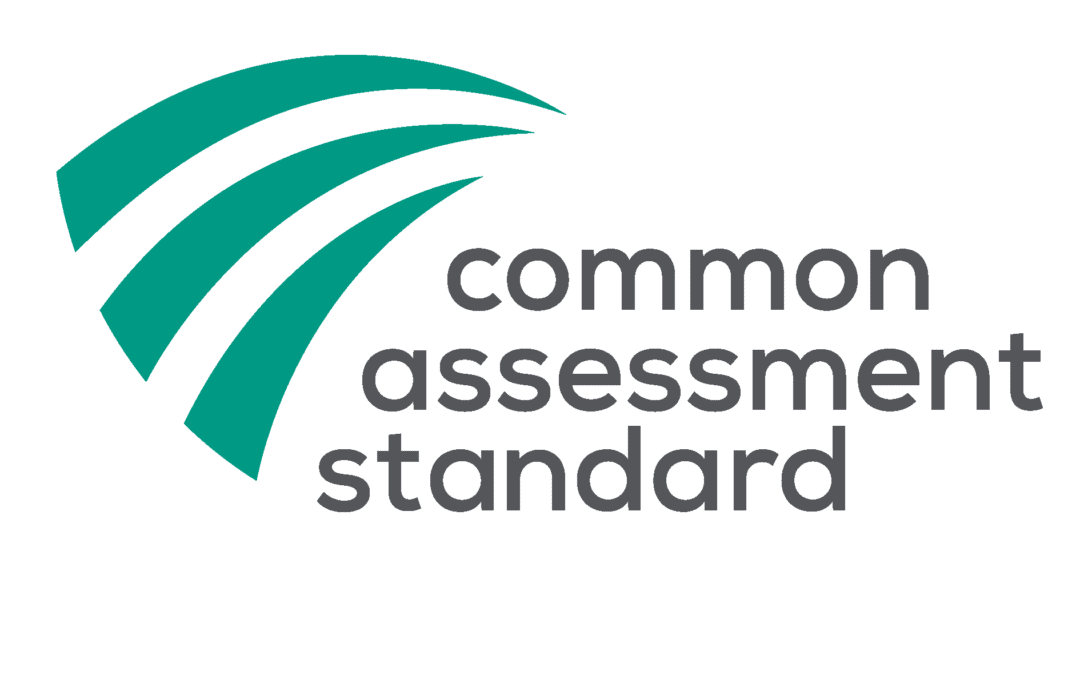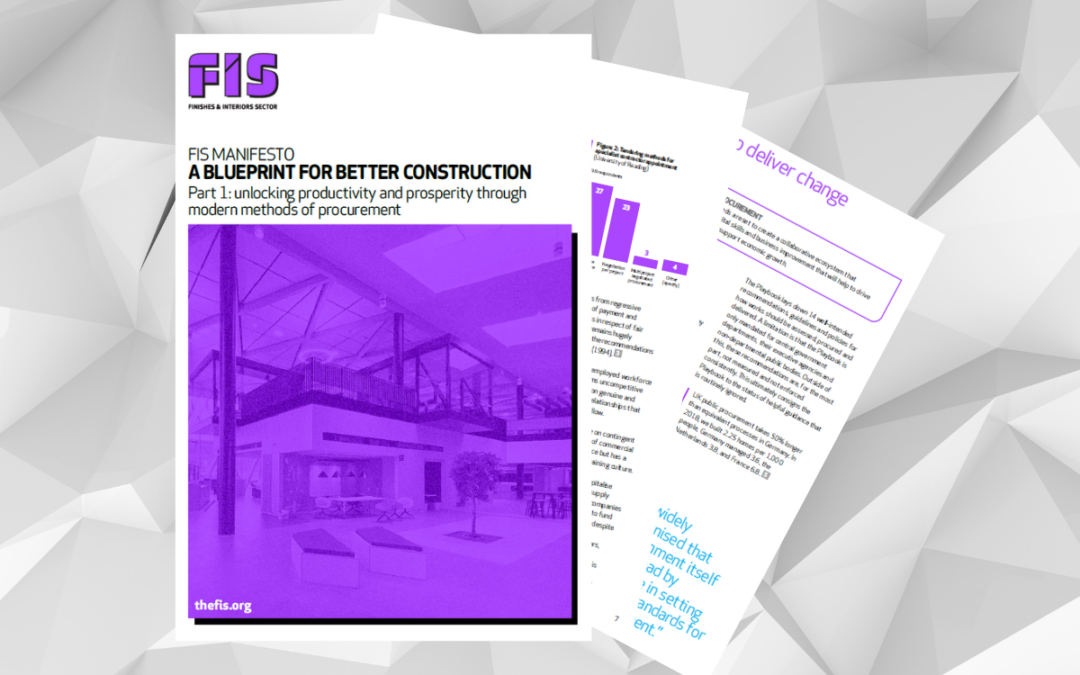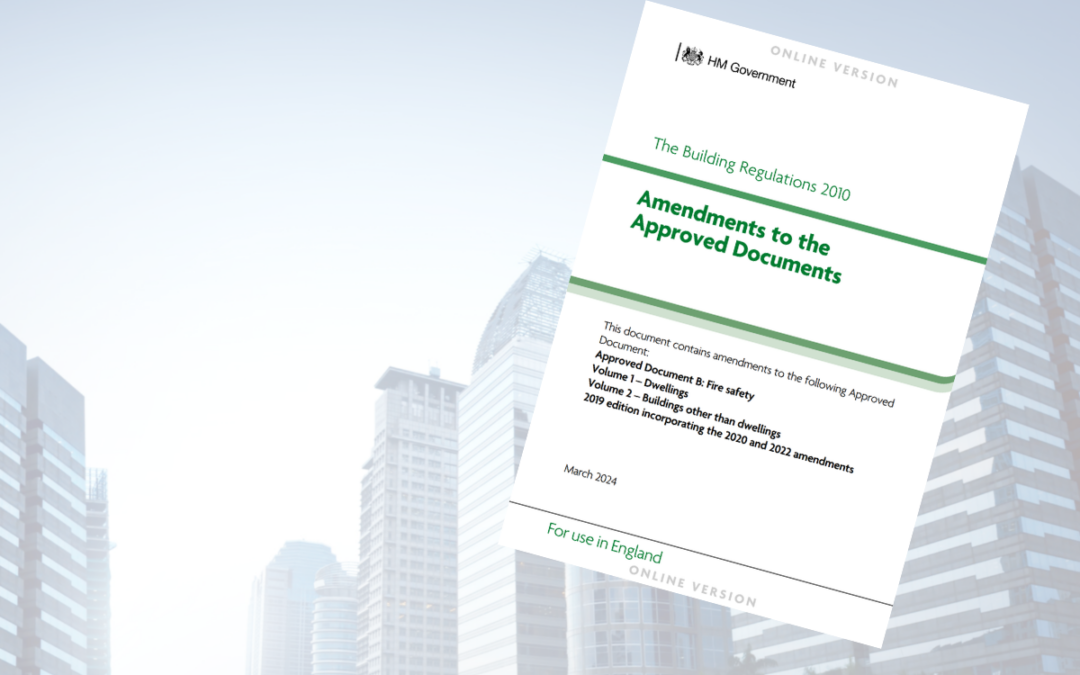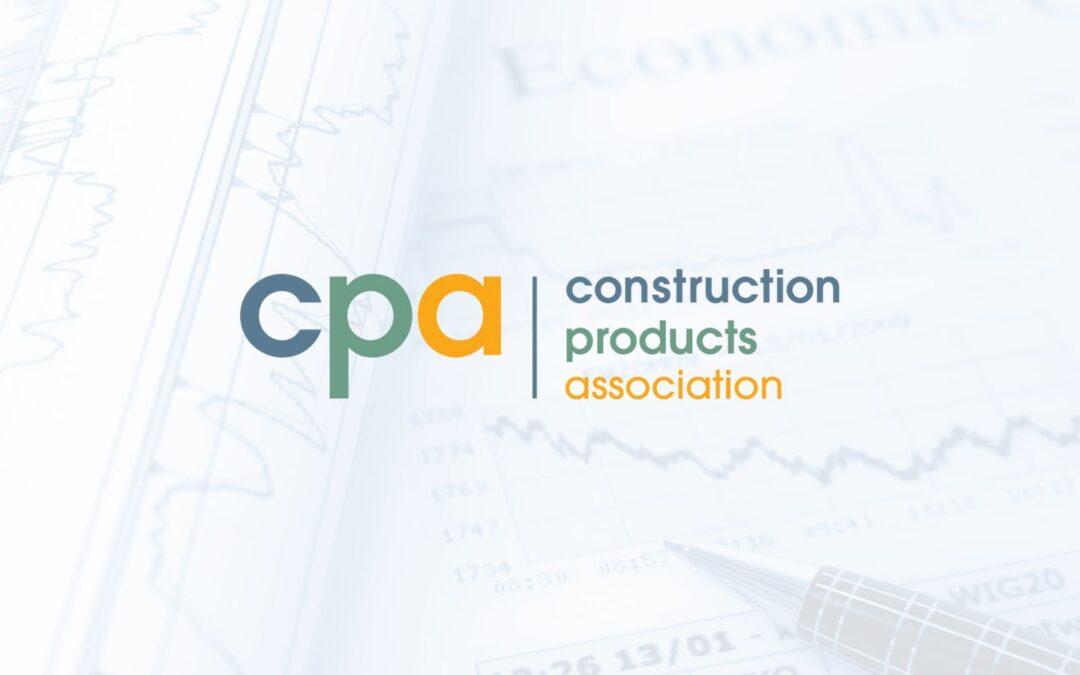
by Clair Mooney | 11 Apr, 2024 | Main News Feed
The Cabinet Office has published Procurement Policy Note 03/24 which removes reference to PAS 91 meaning the Common Assessment Standard should now be used across the public sector. Following the withdrawal of PAS 91 by BSI last year, central Government departments and wider public sector bodies can only use the Common Assessment Standard for pre‐qualifying suppliers for construction works contracts. The changes to the PPN must be implemented by contracting authorities within three months, and it is another significant step forward for the Common Assessment Standard, which will help to reduce duplication for the supply chain whilst streamlining public sector procurement.
The Common Assessment Standard has reached a tipping point over the last 12 months, with a growing list of contractors and clients specifying it and more than 18,500 companies certified against it by five Recognised Assessment Bodies. It is also being updated to ensure it can be used to demonstrate companies have the organisational capability to fulfil their roles under the Building Safety Act.

by Clair Mooney | 10 Apr, 2024 | Main News Feed
CITB has set up a ‘New Entrant Support Team’ to assist registered members with taking on Apprentices and new entrants from inception to completion and will cover
Recruitment
The team will signpost you to useful employment resources and help advertise your apprenticeship vacancy on Talentview to attract potential candidates and let them find you – all for free, helping you get the right apprentice.
CITB Funding
The team will ensire you’re set up to receive CITB apprenticeship grants:
• Attendance grant: £2,500 (per year, per apprentice)
• Achievement grant: £3,500 (on successful completion of the apprenticeship).
Admin/paperwork (including Government Funding)
You will receive help with the paperwork, liaising with the training provider, setting up your Government Digital Account and more so you can focus on the job.
Retention
The team will keep in touch to make sure you have the support you need to help your apprentice achieve and become a fully-fledged employee on completion.
More information is available here.

by Clair Mooney | 9 Apr, 2024 | Main News Feed
FIS has today issued the first part of the FIS Manifesto, A Blueprint for Better Construction: Delivering Change in the Finishes and Interiors Sector.
This document, the first in a series of three policy documents sets down FIS views on near- and long-term policy levers that will support transformation in the sector. The Manifesto draws heavily on recent research with the University of Reading on Procurement and Contracting, It is less focussed on the macro-economic picture than the Chancellor’s Budget, instead zoning in on the pressing business challenges which beset the specialist construction sector set against four key headings.
- Public Sector Procurement reform led by a more ambitious Construction Playbook. This needs to be backed by a consistent effort to measure outcomes.
- Eliminate unreasonable risk transfer by enforcing standard form contracts that are aligned with supply chain insurance.
- Revisit the Construction Act to simplify payment, reform retention and extend enforcement powers.
- UK Construction Products Marking rules must be aligned to those for other products to support investment in new testing.
Commenting on the launch of this document, FIS President Philip Brown stated:
“This document draws together a lot of work that the FIS team has been doing through our daily engagement with members. For an organisation to have a strong voice, it must carry a strong mandate and this is what we are seeking here. We have a unique opportunity with Building Regulatory Change and an awakening on Sustainability already adding momentum to transformation. Now is the time to rally the construction voice, to unite our community around a number of key simple statements. The main focus is Policy levers, but it should complement our “Empowering the Responsible No” campaign highlighting areas where clients, including Government have unreasonable and damaging expectations that are ultimately undermining the sector.”
FIS CEO Iain McIlwee added:
“This Manifesto draws together the key challenges and policy levers that identified through our research and wider engagement with members. The essence of this document is simple, but we do not underestimate the scale of the challenge.
My hope in setting these points down with explanation and specificity that we are moving beyond the who and why and starting to get into the what, when and how. We will be encouraging members to engage with their local representatives to carry this points forward and will be sharing with officials and politicians as well as colleagues from across construction to ensure our next Government are clear of the actions they need to take to unlock the full potential of our sector and the broader construction industry.”
The manifesto is available to download here

by Clair Mooney | 8 Apr, 2024 | Main News Feed
On the day that we learned that the majority of higher risk building Gateway 2 applications were not valid (Regulator: Majority of higher-risk building applications ‘not valid’ | Construction News) the HSE has asked us to remind you that from 6 April projects may need to transition to the Building Safety Regulator (BSR) as the building control authority.
Some projects are eligible to stay under their current building control arrangements, as long as they meet certain criteria. Eligibility for transitional arrangements in building control – Making Buildings Safer
However, if your project:
- Had building control arrangements in place, AND
- Building work (including design work) had started, AND
- A notice that the work had made sufficient progress was not given to the LA by 6 April
OR
- Has started building work but existing building control arrangements cease /are cancelled OR
- Has started building work but there were no formal building control arrangements in place
Then, your project will need to transfer from your existing building control provider to BSR.
You will do this through the portal, which has been adapted to accommodate projects.
New guidance is on its way and we will circulate it as soon as it becomes available.
For more guidance and to register for our new online training visit www.thefis.org/knowledge-hub/technical/fire-protection/building-safety-act/

by Clair Mooney | 5 Apr, 2024 | Main News Feed
The Government has published a document listing amendments to Volumes 1 and 2 of Approved Document B which will come into effect in September 2026.
These amendments principally concern:
- Threshold for the provision of a second staircase in blocks of flats with a storey 18m or more in height.
- Evacuation shafts are introduced to support the provision of evacuation lifts.
- Changes to provisions for fire doorsets.
- New terminology including definitions for evacuation shaft, evacuation lift lobby, interlocked stair and storey exit.
- Provisions for horizontal escape and vertical escape separated as per the structure of Volume 2.
The 2019 edition incorporating the 2020 and 2022 amendments will continue to apply where a building notice or an initial notice has been given to, or a building control approval application with full plans made to, the relevant authority before 30 September 2026 and either the building work to which it relates:
- has started and is sufficiently progressed before that day; or
- is started and is sufficiently progressed within the period of 18 months beginning on that day
You can view the amendments at the link below:
Fire safety: Approved Document B
FIS will publish further detailed guidance on these changes in the coming months.

by Clair Mooney | 5 Apr, 2024 | Main News Feed
Standards are used in our everyday lives to show that products are safe, suitable for a particular use or provide guidance and process, for example many products carry a CE or a UKCA mark to demonstrate their conformity to certain standards, yet access to Standards can be restricted simply by their cost which can run into £100’s, because the National bodies who draft them are part funded by selling them.
We recently covered The European Court of Justice Judgment on providing the free Harmonised standards which are used to define products where CE marking is mandated. We see this as an interesting development and may have repercussions on how Standards are managed moving forwards, in the UK and Europe.
At FIS we strive to make the key standards free to our community via the FIS Standards Portal. It is important moving forwards that we have a robust standard setting body, but the cost to access and use the standards is not prohibitive, particularly for SME’s.
This is just one of the membership benefits. If you are not currently a member and want to know more, please don’t hesitate to contact our Head of Membership Michelle Armstrong michellearmstrong@thefis.org

by Clair Mooney | 4 Apr, 2024 | Main News Feed
On 6 April flexible working requests become a day one right for UK employees. This means employees don’t have to have any length of service with your business before they submit a formal request for flexible working arrangements.
FIS member Citation is hosting a webinar on Wednesday 10 April to explain what flexible working actually is and what you need to do to implement these legislation changes.
REGISTER HERE
The webinar will cover:
• What a statutory flexible working request is and who can make one
• What these changes mean for your business and how you can prepare
• How to handle requests, make your decision and update contracts of employment
• An overview of all the other Employment Law changes coming into force across 202

by Clair Mooney | 28 Mar, 2024 | Technical
In a recent appeal heard at the European Court of Justice (Case C-588/21 P), the Court ruled that four harmonized standards form part of EU law and access must be freely available without charge.
The Court decided that there is an overriding public interest in free access to harmonized standards that have been cited in the Official Journal of the European Union (OJEU). Although the case related to just four standards, in practice it is likely to apply to future requests for access to all harmonized standards that have been cited in the OJEU.
BSI is now working with CEN, CENELEC and the other members of CEN and CENELEC to understand the implications of the judgment. They will look at how the judgment can be delivered whilst ensuring the future sustainability of the standards system.
If you have any queries on the ECJ ruling please send them to ECJqueries@bsigroup.com
FREE British Standards for FIS SME Members
Sign up now for exclusive access to 100 British Standards. Eligible companies will receive access to the British Standards upon registration.

by Clair Mooney | 28 Mar, 2024 | Technical
FIS is aware of two recent reports raised through CROSS (Collaborative Reporting for Safer Structures UK) that highlight potential problems with the application of passive fire protection products.
One issue relates to the use on sealants with CPVP pipes (sprinkler pipe) which can apply to fire stopped pipe penetrations whereby the sealant or firestopping product used can cause failures over time which require repair and downtime of the sprinkler system. Additionally, it is possible that these failures could manifest only at such a time where the active fire suppression systems are required, and that the firestopping at the location of the penetration could itself fail in the event of a fire due to a difference between the site condition and the test condition.
FIS has previously published guidance on this which can be found here, and the CROSS report can be found here.
The second report deals with assumptions being made about the fire protection of steel supporting members within fire rated timber joist supporting floors. In these cases steel beams are not being protected with intumescent coating as it is assumed that the fire resistance of the floor encompasses the steel beams despite the absence of test evidence demonstrating this.
The CROSS report can be found here.
CROSS is a confidential reporting system which allows professionals working in the built environment to report on fire and structural safety issues. These are then published anonymously to share lessons learned, create positive change, and improve safety.

by Clair Mooney | 28 Mar, 2024 | CSCS
The CLC has published an updated version of its recommendation on Industry Card Schemes following the introduction of the Building Safety Act and the increased focus on competence.
The CLC recommendation has been adopted across the industry since it was first published in 2015, with the result that cards carrying the CSCS logo are specified and promoted for those undertaking recognised construction occupations. It confirms that CSCS Smart Check should be used to verify that individuals hold the correct card for their occupation and that cards should not be issued for non‐construction related occupations or those visiting sites.
Following the successful rollout of CSCS Smart Check, which enables cards across all 38 card schemes carrying the CSCS logo to be verified using the same platform, CSCS ‘Go Smart’ will be turned off on Sunday 31 March. Cards will not be able to be checked using Go Smart after this date, so members should ensure they have fully switched over to CSCS Smart Check in time, and this recent CSCS webinar outlines the steps to take.
CLC has also launched its Bi‐Annual Review and Plan for 2024 which sets out the CLC’s key priorities for this year, including Building Safety, Net Zero and Biodiversity, Next Generation Delivery, and People and Skills

by Clair Mooney | 28 Mar, 2024 | Main News Feed
FIS has been working on a number of fronts looking at how we support the “Responsible No”. As part of this work we have been breaking down the design development process and looking at irreconcilable details. We are looking for member feedback on an outline paper that we have prepared “A Defined Design Development Process”.
This paper looks at the design development process and allocation of responsibility to trade contractors within the context of Contractors Design Portion (CDP).
The transfer of liability in complex amendments to standard form contracts and expectations associated with design development is commonplace. Concern centres on procurement processes (see Figure 1) that give trade contractors little or no time to address design at tender stage and don’t allow for early supply chain engagement and encourage or foster collaboration between specialist contractors.
Increasingly specialist contractors are finding themselves responsible for the compliance of details that they did not design but are presented in contract as their liability. This paper starts to explore how this should be co-ordinated more effectively through a more consistent and consultative design development centred on a standardise approach to creating a Design Responsibility Matrix (DRM).
We would appreciate feedback on this document using this form. Please email to info@thefis.org by 22 April 2024.

by Clair Mooney | 28 Mar, 2024 | Employment
The government has announced an increase to the National Minimum Wage and the National Living Wage, which will take effect from 1 April 2024.
These wage increases are significant because:
- the Low Pay Commission has highlighted it as the largest-ever increase to the minimum wage in cash terms
- the age that workers must receive the highest rate of the National Living Wage is being lowered, so it now applies to employees or workers aged 21 or over – it used to only apply to those aged 23 or over.
This effectively gets rid of the old ‘adult’ rate, which used to apply to those aged 21 or 22. The National Minimum Wage is the rate that applies to employees or workers aged under 21 or apprentices.
Those who are entitled to receive the apprentice rate must be aged under 19, or 19 and over and in the first year of their apprenticeship agreement. If an apprentice is 19 or over and has completed the first year of their current apprenticeship, they’re entitled to be paid at least the minimum wage for their age.
What are the new rates?
- Age 21 or over (National Living Wage) – £11.44 an hour (increased from £10.42 an hour or from £10.18 an hour for those aged 21 or 22).
- Age 18 to 20 – £8.60 an hour (increased from £7.49 an hour).
- Age 16 and 17 – £6.40 an hour (increased from £5.28 an hour).
- Apprentices – £6.40 an hour (increased from £5.28 an hour).
It’s important to make sure that pay is increased in line with any birthdays, or work anniversaries for apprentices moving into their second year.

by Clair Mooney | 28 Mar, 2024 | Material Shortages
Statement from John Newcomb, CEO of the Builders Merchants Federation and Peter Caplehorn, CEO of the Construction Products Association, co-chairs of the Construction Leadership Council’s Material Supply Chain Group.
As the first quarter of 2024 draws to a close the latest report from Construction Leadership Council’s Material Supply Chain Group (formerly Product Availability Group) continues to show good levels of product availability across the board.
The beginning of 2024 has also brought early signs of improvement in construction activity, although housebuilding is expected to be flat for most of the year.
Overall construction activity trended upward in January and February reaching its highest level since August 2023, despite poor weather. The weather is likely to have affected sales volumes through builders’ merchants, which remained static during the first two months of the year. Most regions, however, saw an increase in volumes in March and there are hints of pent-up demand as a handful of regions are showing high levels of sales compared to 2023.
Prices generally have increased by 3 to 4%, which mirrors the wider economy where CPI inflation in January was 4.0%.
Previous concerns about the impact on products normally transported via the Red Sea seem to have dissipated or are manageable. Although some are experiencing increased shipping costs and slight delays in delivery of ironmongery and sanitaryware this is now described as an ‘inconvenience’, and not a major issue.
Separately, the electro-technical sector has flagged concerns about the ongoing geopolitical risks in East Asia and the potential impact on any construction products, plant and tools with chips sourced from that region. The Group is considering adding this issue to its ‘horizon scanning’ and some members are independently analysing the situation.
However, the availability of skilled labour (outlined in the Group’s report of 20 February 2024) remains the most immediate and pressing concern for most in the Group, with several expressing the view that current market conditions have been masking the true scale of this issue, which will be exposed when the market picks up. The Group has shared these concerns with the CLC’s People & Skills Group where they will be taken up in further detail.

by Clair Mooney | 22 Mar, 2024 | Drylining
FIS has launched a revised and updated Best Practice Guide – Installation of Drylining to help promote best practice in the installation of drylining, and to take account of new working practices, the Building Safety Act and sustainability.
First published in 2015 and updated in 2018, this revised guide is an invaluable aid to specifiers, contractors, clients and installers. This publication will guide them through the design and installation of internal, non-loadbearing drylining constructions using gypsum plasterboard on rigid metal framework. It also includes descriptions of other non-plasterboard, such as calcium silicate board, which are also used in drylined systems. This guide includes drylined partitions, linings and passive fire protection.
Split into sections, the revised guide covers everything from the initial tendering and planning stages through to the eventual installation. It offers a series of points to consider when carrying out the installation of all types of drywall and provides updated and revised information including:
The guide sits alongside other FIS Best Practice Guides that relate to drylining:
Commenting on the drylining guides, Iain McIlwee, FIS Chief Executive said:
“Drylining systems form firewalls, fire escape routes and provide passive internal fire protection so it is incredibly important to get it right at all stages of installation and this has to start far earlier and long before boots hit the ground. Our new and updated guides allow professionals to reduce risks, support compliance and most importantly of all encourage responsible planning.”
A valuable resource for improving works package delivery, these guides work well when they are included in proposals and project plans to demonstrate how to best approach a project.
You can download the Best Practice Guide – Installation of Drylining here.
For further information or for any questions and comments please contact the FIS at info@thefis.org or call 0121-707-0077

by Clair Mooney | 21 Mar, 2024 | Health and Safety
FIS is working with The Diabetes Safety Organisation (DSO) to draw attention to the vital issue and risks that can be posed by diabetes in the workplace. Diabetes is often misunderstood and underestimated as a condition, and its impact on individuals and the workplace is not always visible. Around 8% of your employees have diabetes and around 33% have pre-diabetes. Many employees with diabetes ‘hide’ their condition at work and/or feel unsupported by their employer, leading to poor diabetes management for individuals and greater diabetes risks for them and the business.
In a previous issue of SpecFinish, we heard from Kate Walker, Director at Diabetes Safety Organisation, who explained that the rapid increase in the number of people with diabetes means that it is very likely that some employees on site will have the condition. Employers, therefore, must understand the risks and know how to support affected employees and their colleagues. You can read he full article here https://www.specfinish.co.uk/diabetes-the-invisible-epidemic-creating-major-health-and-safety-risks/
There are 1 million people living with undiagnosed diabetes. Undiagnosed and poorly managed diabetes can lead to significant changes in eye sight, lack of sensation in feet and lower concentration levels. Additionally it causes long term damage to key organs like the heart and kidneys, increasing the number of people who exit the workplace early. With the correct support at work, people can better manage their condition, improving their productivity, concentration and over all safety.
There is limited real world data on diabetes in the workplace and we are looking for organisations to help us and themselves understand key organisational risks such as:
- Whether work practices are compromising the ability of employees with diabetes to manage their condition according to their health providers’ recommendations
- Whether severe hypos are being hidden/not recorded in health and safety data
- Whether employees know how to recognise and assist a colleague experiencing a hypo
- Whether employees with diabetes are choosing to not disclose their condition to their line manager/HR
- Whether employees with diabetes are compliant with DVLA driving regulations
- Whether employees understand the risks from undiagnosed diabetes
- Whether line managers are confident in their knowledge of diabetes risks at work and ability to support employees with diabetes
The survey is confidential and can be completed here – https://forms.office.com/r/iZ1aX051Va

by Clair Mooney | 14 Mar, 2024 | Market data
It was a weak end to 2023 and a subdued start to 2024 for firms operating throughout the construction supply chain, according to the CPA Q4 2023 Trade Survey.
Trade surveys for the fourth quarter of 2023 indicated that it was the worst quarterly performance since the first half of 2020, when activity was disrupted by lockdowns at the height of the pandemic, with declines in workloads for chartered surveyors and SME building contractors, and falls in sales for both heavy and light side product manufacturers.
There are still some areas of growth, however, and workloads growth reported by civil engineering contractors confirms that infrastructure continued to provide activity, a pocket of growth also identified by chartered surveyors, alongside public non-housing. Outside of these sectors, however, the constituent surveys point to little near-term pickup in the first half of 2024.
Falls in new enquiries were reported across SME contractors’ main sectors of focus of house building, commercial/industrial and RM&I, which mirrors the official ONS data on construction output, which has shown a notable decline since the second half of last year, and new orders, which have declined since the end of 2022. For product manufacturers, sales are expected to fall in 2024, whilst for chartered surveyors expectations of growing workloads were again restricted to infrastructure and public non-housing.
A stark downshift in the housing market, reluctance among homeowners to commit to large improvements spending and lower volumes of large commercial and industrial projects in the pipeline mean that demand is increasingly being flagged as a primary constraint or concern for activity over the coming 12 months, particularly when this combines with flatlining economic growth, a step-change to higher interest rates and financing costs, and continued uncertainty over input inflation as the Red Sea transport diversions continue.

by Clair Mooney | 5 Mar, 2024 | Ceilings, Drylining, Employment, Main News Feed, Skills
FIS is looking for members in London to provide support for individuals that have undertaken an introduction course for Interior Systems. The course is taking place in April, so if you can offer a work trial, work experience, or employment then please contact FIS Head of Skills and Training, Beena Nana beenanana@thefis.org before the end of March for more details.
Background
The Skills Centre London are putting together a four-week introduction to Interior Systems in London, in collaboration with FIS and Worshipful Company of Plaisterers.
Individuals will be provided with the following training:
- Green Labourers CSCS card
- Level 1 Award in Health and Safety in a Construction Environment
- Level 1 Certificate in Basic Construction (including Plastering Techniques)
- First Steps into Construction
- Personal Wellbeing in Construction
- Introducing Environmental Awareness and Sustainability
- Practical skills training in our training environment
- Work experience with an interior systems employer
- Employability skills, mock interviews, CV support and career information, advice and guidance
A graduation ceremony will held at Plaisterers Hall on Monday 29 April, for both the candidates and members.
More information on the course is available here.

by Clair Mooney | 1 Mar, 2024 | Main News Feed
Supported by FIS, the Construction Quality Improvement Collaborative (CQIC) in Scotland is conducting research into Contractor Design Portions (CDPs). The use of CDP has grown over the years, and we know that its use can create challenges (this was a major issue raised in our work with the University of Reading last year).
This survey will give an insight into why and how it is used and how its use can be improved. The survey information will be analysed and will allow the development of guidance that will support the sector to use CDP in a manner that will contribute to the construction quality outcomes we are all striving for.
The link to the survey is: CQIC – CDP Working Group
We would urge all those involved in the sector to take the time to contribute to this important piece of research which will bring benefits to us all – the deadline for the survey is 15 March 2024. Please do forward this too, to any construction colleagues (the aim is to gather information from all parts of the supply chain and it is not limited to the finishes and interiors sector). We have a real opportunity to use the data to make a difference, but the validity and power of the data will be dependent on the level of response.
If you have any questions about the survey, contact Iain McIlwee on iainmcilwee@thefis.org

by Clair Mooney | 1 Mar, 2024 | Events, Sustainability
Thanks again to all who supported the FIS Conference on
Delivering Productivity, Quality and Compliance in the fit-out sector and
Putting Net Zero and sustainability first in a practical way at the Workspace Design Show. It was a really interesting couple of days with views from over 30 leading experts blending with hundreds of attendees over the two days. It was a great opportunity to look (collectively as a supply chain) at some of the key opportunities and challenges that we face and how we can individually and collectively change for the better. So much content to digest and consider, but clear themes that we can draw. It really struck me that whilst we covered a wide range of subjects, regardless of the question, the answers were similar and lean back into some core principles. To really step forward we need:
- earlier supply chain engagement centred on better risk management and a clear design development process,
- we need to look in this at the Design Responsibility Matrix and a better defined process that picks up where the plan of works falls short,
- the need to be clearer on what value we are procuring and find ways to step outside of the immediacy of the project,
- stepping outside of the project amounts to focussing on a more circular supply chain that loops back rather that overlaps to accelerate
- empathy led change needs better communication and more direct engagement with the client on the impact of current behaviours on insurability and sustainability.
- Complicated contractual engagements undermine all of above and there needs to finally ne a genuine concerted effort to outlaw the routine amendments that distort risk and mask problems
Above is where we’ll be focussing on in our lobbying work and will be captured in Part 1 of our upcoming Manifesto that we will be releasing to members for consultation in the next week.

by Clair Mooney | 28 Feb, 2024 | Awards, Main News Feed
FIS announced the winners of its 2024 Innovation Awards at a ceremony held at is Conference in London on 27 February.
In front of a packed audience at the Business Design Centre, the winners of the FIS Innovation Awards were announced and presented. The Awards recognise and celebrate innovation in the finishes and interiors sector showcasing companies that are paving the way for greater efficiency and collaboration. The awards comprised four categories: Product Fit-Out, Product FF&E, Digital and Sustainability.
All entries were independently assessed by a panel of expert judges and the winner of each category was announced in front of a live audience. The winner of each category was then invited to deliver a short pitch on their innovation to the audience, who then determined the overall 2024 Innovation of the Year winner.
The 2024 award winners are:
Innovation of the Year
IOBAC UK for its contamination free flooring installation tabs
Digital
PlanRadar for its SaaS field management platfor, PlanRadar
Product – Fit Out
Fire Stop Products for SpeedCutter
Product – FF&E
Box Strap for its Box Strap bracket
Sustainability
IOBAC UK for its contamination free flooring installation tabs
The awards and event were supported by sponsors Troldtekt, Protektor, EPD Insulation Group, Canary Wharf Contractors and SpecFinish























